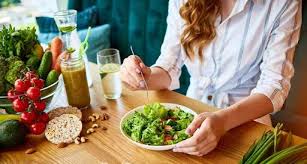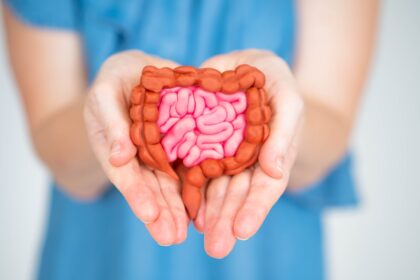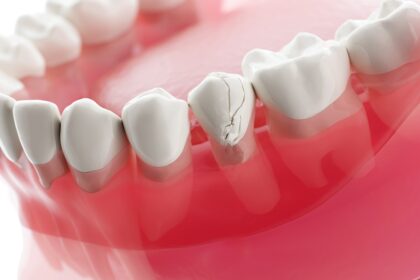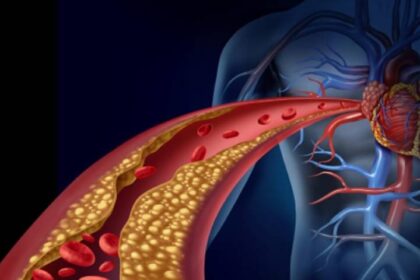Women’s nutritional needs evolve with age due to hormonal shifts, reproductive changes, and lifestyle transitions. From childhood to old age, what a woman eats plays a key role in her energy levels, reproductive health, bone strength, immunity, and overall well-being.
This guide offers expert-backed nutrition tips tailored to women at different stages of life, helping you make better food choices for lifelong health.
Why Women’s Nutritional Needs Are Unique
Hormonal Cycles and Nutrition
Women experience monthly hormonal fluctuations, pregnancy, breastfeeding, and menopause — all of which significantly influence nutritional needs.
Key Nutrients Women Must Prioritize
- Iron – due to menstruation and pregnancy
- Calcium & Vitamin D – for bone health
- Folate – especially during childbearing years
- Omega-3s – support brain and heart function
- Protein – supports muscle maintenance and hormonal balance
Nutrition for Girls and Teenagers (10–19 Years)
This phase is critical for growth, puberty, and bone development.
What to Eat
- Calcium-rich foods: Milk, yogurt, cheese, tofu
- Iron sources: Eggs, leafy greens, fortified cereals
- Healthy snacks: Nuts, fruits, whole-grain toast
Tips
- Avoid excess sugary drinks
- Encourage a balanced plate: carbs, protein, fiber, and healthy fat
- Promote water intake over sodas or juices
Nutrition for Women in Their 20s and 30s (Reproductive Years)
Focus on fertility, hormone balance, and energy.
What to Eat
- Folate: Lentils, citrus fruits, spinach (for fetal development if pregnant)
- Iron: Beans, fish, poultry, iron-fortified grains
- Protein: Eggs, chicken, quinoa, Greek yogurt
- Hydration: Minimum 8 glasses of water per day
Lifestyle Tips
- Avoid crash diets
- Limit caffeine and alcohol
- Maintain a consistent eating schedule
Nutrition During Pregnancy and Breastfeeding
Nutrition affects both mother and baby’s health. Nutrient needs increase significantly.
What to Eat
- Folic acid: Prevents birth defects
- Iron and protein: Support red blood cell production
- Calcium: For baby’s bones and teeth
- Omega-3s: For baby’s brain development
Avoid These Foods
- Raw fish and meat
- Unpasteurized dairy
- High-mercury fish (e.g., shark, swordfish)
- Caffeine over 200mg per day
Nutrition for Women in Their 40s and 50s (Perimenopause & Menopause)
Focus on hormonal support and bone preservation.
What to Eat
- Phytoestrogens: Found in soy products — help balance hormones
- Calcium & Vitamin D: Yogurt, sardines, fortified cereals
- Magnesium: Bananas, seeds, leafy greens
- Anti-inflammatory foods: Berries, olive oil, turmeric
Tips
- Reduce processed and sugary foods
- Include weight-bearing exercises
- Watch sodium intake to prevent hypertension
Nutrition for Women 60+ (Senior Years)
At this stage, the focus should be on preserving muscle mass, brain health, and preventing chronic diseases.
What to Eat
- Protein: Lean meats, eggs, plant-based proteins
- Fiber: Whole grains, prunes, lentils for digestion
- Vitamin B12: Often low in older adults
- Hydration: Older adults often feel less thirsty — drink consciously
Tips
- Eat smaller, more frequent meals
- Use herbs and spices instead of salt
- Maintain an active lifestyle to aid digestion and mobility
Sample Daily Diet Plan for Women (General)
| Meal | Example |
|---|---|
| Breakfast | Oatmeal with berries and almonds + green tea |
| Mid-Morning | Boiled egg + fruit (apple or banana) |
| Lunch | Grilled chicken, brown rice, sautéed spinach + yogurt |
| Snack | Handful of mixed nuts + coconut water |
| Dinner | Baked fish, sweet potatoes, steamed broccoli |
| Optional | Warm milk with turmeric or herbal tea before bed |
Common Nutritional Deficiencies in Women
| Nutrient | Symptoms of Deficiency | Sources |
|---|---|---|
| Iron | Fatigue, pale skin, dizziness | Red meat, spinach, lentils |
| Calcium | Weak bones, cramps, brittle nails | Dairy, sesame seeds, tofu |
| Vitamin D | Weak immunity, bone pain | Sunlight, fish, fortified foods |
| Folate | Poor cell repair, birth defects | Leafy greens, citrus, legumes |
| B12 | Numbness, memory loss, weakness | Eggs, milk, chicken, fortified cereals |
Conclusion
Every stage of a woman’s life demands tailored nutrition. From supporting growth in teenage years to managing menopause symptoms and preserving bone strength in later life, smart dietary choices can transform your health journey. Consistency, balance, and awareness are key — and remember, healthy food is not a restriction, it’s fuel for your lifelong strength and well-being.
Frequently Asked Questions (FAQs)
1. What vitamins are most important for women?
Iron, calcium, vitamin D, folate, and B12 are especially important depending on your age and life stage.
2. How can I avoid iron deficiency during menstruation?
Eat iron-rich foods like spinach, red meat, and lentils, and pair them with vitamin C for better absorption.
3. Is it safe to diet during pregnancy?
No. Weight loss dieting is not recommended during pregnancy. Focus on nutrient-dense foods instead.
4. Should older women avoid dairy?
Only if lactose intolerant. Otherwise, low-fat dairy is excellent for calcium and protein.
5. Can hormonal changes affect appetite?
Yes, estrogen and progesterone fluctuations can impact cravings, metabolism, and hunger signals.
6. How much protein do women need per day?
On average, 46–60 grams per day, depending on age, weight, and activity level.
7. Is it necessary to take supplements?
If you can’t meet nutrient needs through food alone, supplements can help — but only after consulting your doctor.
8. What’s the best diet for menopausal women?
A Mediterranean-style diet rich in whole grains, veggies, lean protein, and healthy fats supports hormone balance and bone health.









